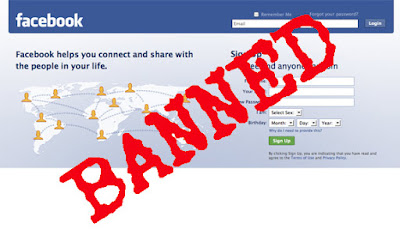
But just like anything else, Facebook is also easily abused. And it is all fun and games until someone gets hurt. Reports of cyber crimes, perverts and hacked profiles among other things have been around social networks for as long as social networking has existed. Many users have had some sort of unpleasant experience on Facebook at least once or twice. The very nature of social networking can unwittingly open you up to these dangers. Cyber criminals enjoy a huge amount of anonymity, can employ remote-operated programs and subversive tactics to access your information, and can be extremely hard and even impossible to trace.
23 year old Dinouk says that he had his Facebook profile hacked into several times. He kept changing his password but this was not keeping the hacker out. The worst part was that his hacker was someone that knew Dinouk closely. He would chat with Dinouk’s friends and talk to them pretending to be him or his girlfriend. Unable to figure out what to do, Dinouk made a complaint at the Computer Emergency Response Team, located at the BMICH, but did not receive much help. When he asked how he could go about tracking the hacker to his or her computer, he was told that to do that they would have to undergo a long and complicated process involving court orders from the United States with instructions to Facebook.
Sonali, a student, says that she opened a Facebook account when she was sixteen. Being a bit of an entrepreneur she started her own event management business that became quite successful. But soon her account was hacked by a person she knew and her password was changed. “He was using my name to do things for his benefit” she said adding that the security settings on Facebook were “quite weak.” “ I have many friends who have had fake accounts of them made on Facebook. It has become such a trend and I have not been on it since last year. It is not as safe as people think it is” she warns. Repeated attempts to contact Facebook to shut these profiles down have failed, and Sonali and her friends have now just given up.
Nimra, a marketing executive, has had a similar spate of problems since 2010. A fake profile with several of her pictures was created. When Nimra reported this to Facebook they took about two to three months to respond. “The pictures had been taken from my Facebook profile and that means it was someone on my friend list” says Nimra. After that incident happened yet another profile appeared with her name and picture on it. But that profile was soon changed by the person operating it and soon another face was substituted along with a name to replace Nimra’s. “I have now put everyone on a limited profile setting on Facebook” she says referring to the Facebook option where you can limit the information people have access to on your account.
The government’s computer crime division, the Computer Emergency Response Team, says that it has received over 400 Facebook related complaints. Its Chief Engineer Rohantha Palliyaguruge told The Sunday Leader “ We have stopped several fake accounts over the past few months. Most of these complaints are with regard to fake profiles; cases of harassment and slander; passwords being stolen and held for ransom etc.” He adds that the CERT has a direct link with Facebook USA that helps them get the job done faster.
The services the CERT offers are free
 of charge and they can be contacted directly by phone or e-mail. Palliyaguruge says that they are a semi-government organisation that comes under the purview of the Presidential Secretariat. Facebook crime is rampant around the world. Most of it involves the publication of photos, random harassment and abuse. Some of the more high profile cases enjoy widespread media attention. About 73 percent of all web servers in the US have been hit with some form of cyber crime. Facebook has been used in many cases abroad to glean information that have helped burglars break into houses and initiate other forms of more severe old fashioned crime using new age tactics.
of charge and they can be contacted directly by phone or e-mail. Palliyaguruge says that they are a semi-government organisation that comes under the purview of the Presidential Secretariat. Facebook crime is rampant around the world. Most of it involves the publication of photos, random harassment and abuse. Some of the more high profile cases enjoy widespread media attention. About 73 percent of all web servers in the US have been hit with some form of cyber crime. Facebook has been used in many cases abroad to glean information that have helped burglars break into houses and initiate other forms of more severe old fashioned crime using new age tactics.CERT advocates protecting yourself from cyber crime as the best way to go about avoiding being a victim of it. Prevention is indeed better than cure, especially in a scenario like this where cures are harder to come by.



No comments:
Post a Comment